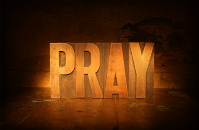Title: The Paradox of Human Nature: Folly, Sinfulness, and Redemption
Title: The Paradox of Human Nature: Folly, Sinfulness, and Redemption
Introduction:
In the intricate tapestry of human existence, one thread weaves through the fabric of our collective consciousness — the paradox of our nature. We are beings of immense potential, yet plagued by our own folly, sinfulness, and iniquities. Despite our failings, we find solace in seeking redemption through divine intervention, often crying out to the Lord in moments of distress and sorrow. This essay delves into the complexities of this paradox, exploring the interplay between human fallibility and the yearning for salvation.
Folly and Sinfulness:
Human history is replete with examples of our folly and sinfulness. From ancient civilizations to modern societies, the annals of time bear witness to our propensity for selfishness, greed, and moral transgressions. The biblical narrative depicts this inherent flaw in humanity, tracing it back to the Garden of Eden, where Adam and Eve succumbed to temptation, ushering sin into the world. Since then, humankind has grappled with the consequences of their disobedience, perpetuating a cycle of wrongdoing and repentance.
Iniquities and Rebellion:
Our iniquities stem from a rebellion against moral precepts and divine guidance. Repeatedly, we stray from the path of righteousness, indulging in vices that tarnish the purity of our souls. Whether driven by pride, lust, or envy, our rebellious nature leads us astray, distancing us from the grace of God. The prophets of old admonished their people for their waywardness, urging them to turn from their wicked ways and seek reconciliation with the Almighty. Yet, the allure of sin often proves too strong to resist, ensnaring us in its grasp and leading us further into darkness.
Crying Out to the Lord:
Despite our waywardness, there exists within us a primal instinct to seek solace in the divine. When faced with the consequences of our actions, we are quick to cry out to the Lord for deliverance. In moments of distress and sorrow, when the burdens of our transgressions weigh heavily upon us, we turn to prayer as a means of seeking forgiveness and redemption. The Psalms resonate with the cries of the repentant soul, beseeching God for mercy and salvation. It is in these moments of vulnerability that we acknowledge our dependence on a higher power, recognizing our inadequacy in the face of divine justice.
The Path to Redemption:
Redemption lies not in the denial of our humanity, but in embracing it fully, flaws and all. It is through humility and contrition that we find the courage to confront our failings and seek reconciliation with the divine. The parable of the prodigal son serves as a poignant reminder of God's boundless mercy and forgiveness, welcoming back the wayward soul with open arms. In the crucible of repentance, we transform, emerging from the fires of tribulation purified and renewed in spirit.
Conclusion:
The paradox of human nature — our folly, sinfulness, and propensity for redemption — is a testament to the complexity of human experience. We are flawed beings, prone to error and moral failings, yet capable of transcending our limitations through acts of contrition and faith. In our moments of despair, when the weight of our sins threatens to overwhelm us, we find solace in the knowledge that God's grace is infinite, extending even to the lowliest of sinners. It is through our acknowledgment of our ungodly ways and our willingness to turn to the Lord in times of need that we find hope for redemption and salvation.
ADDITIONAL LINKS:

